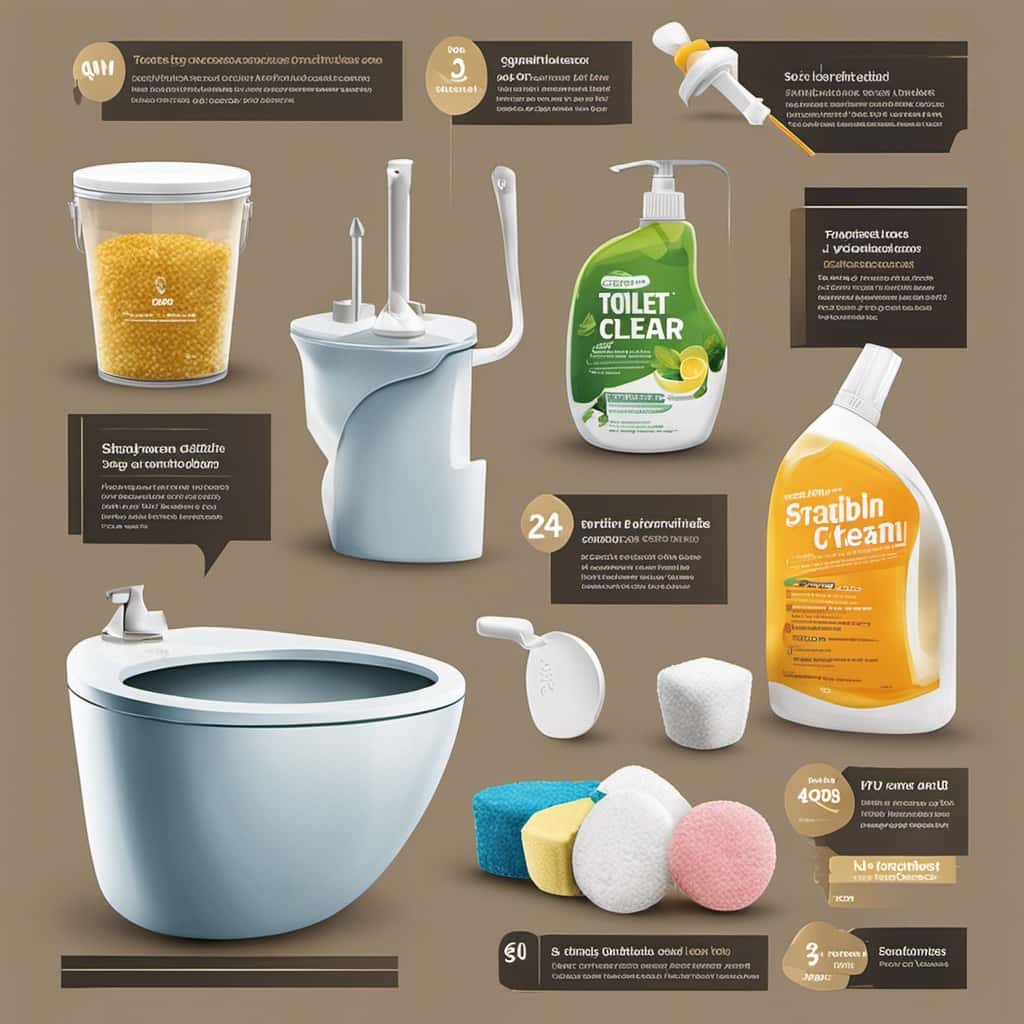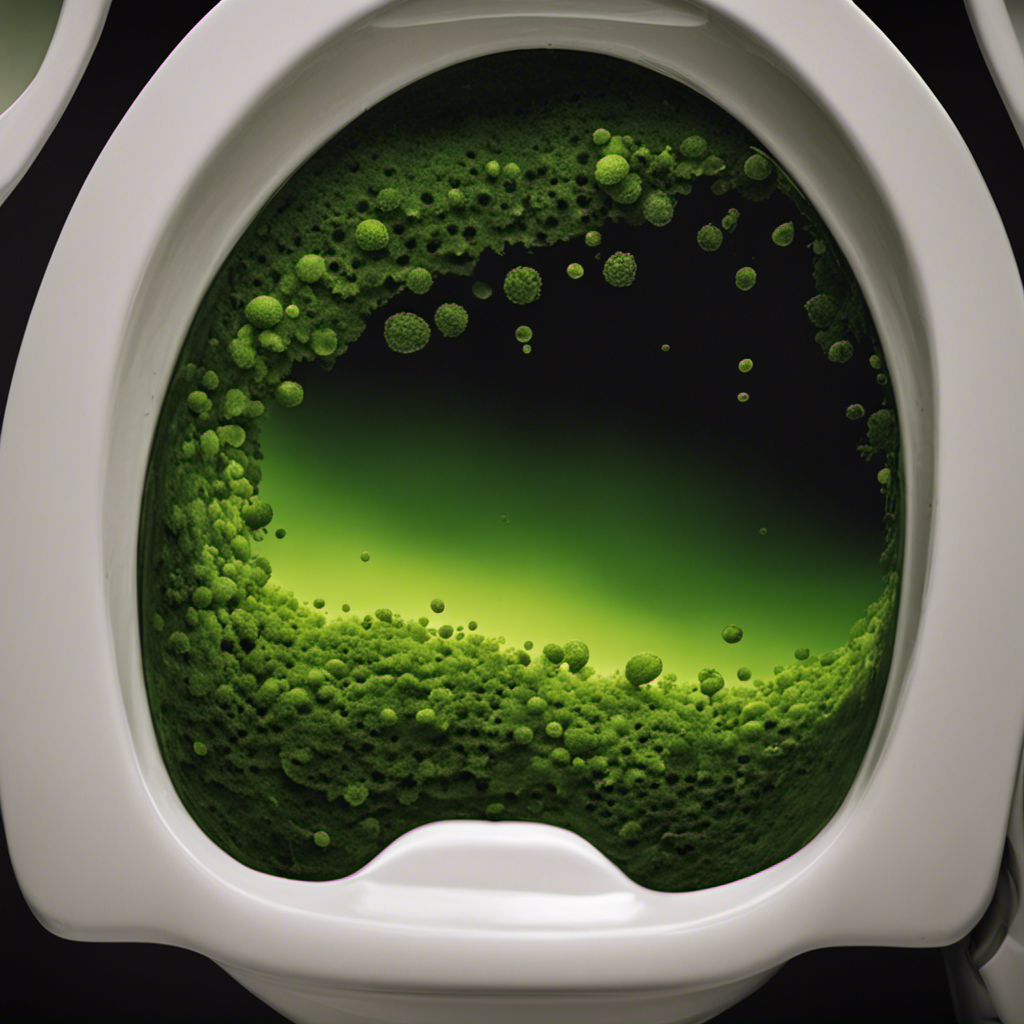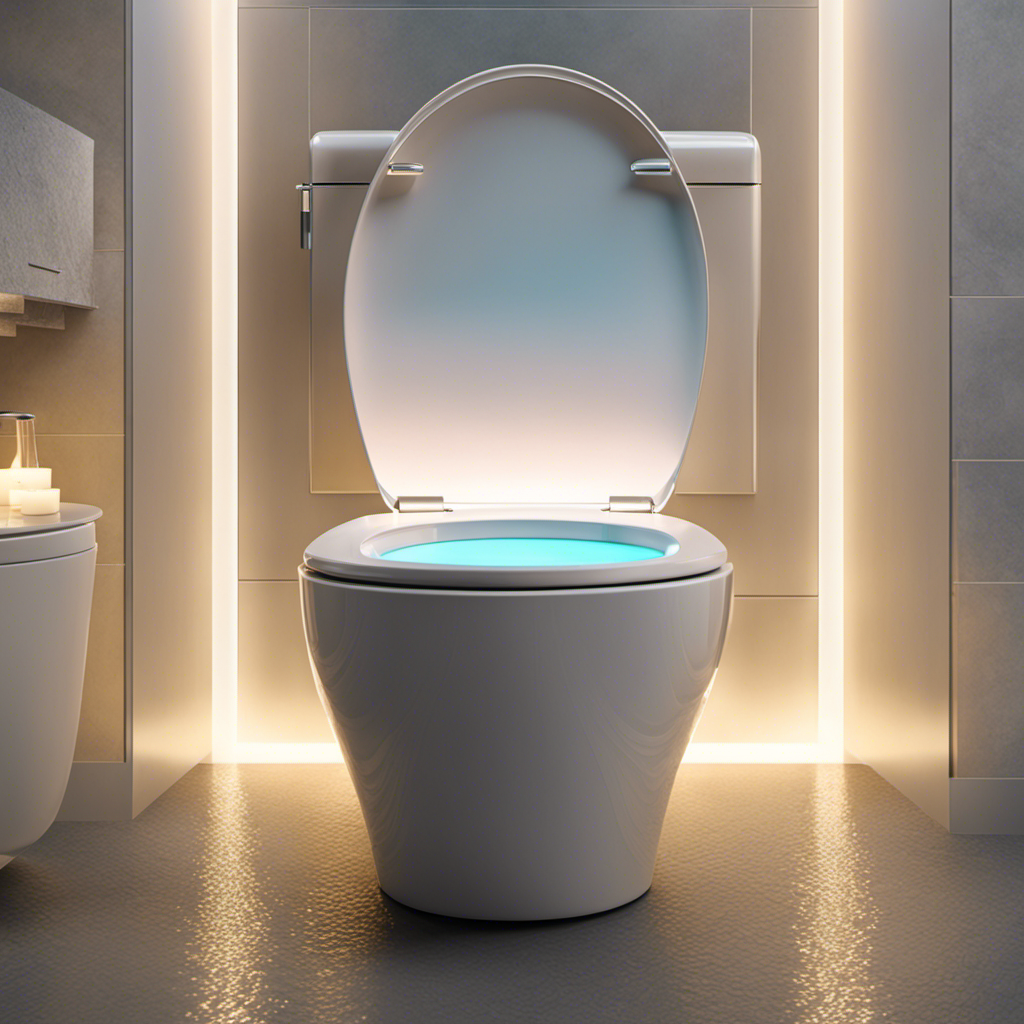Ladies and gentlemen, we find ourselves in the midst of a conundrum.
Should flushable wipes really be flushed? It seems like a simple question with a straightforward answer. However, the truth is far from crystal clear.
In this article, we will delve into the environmental impact of flushing flushable wipes, the plumbing problems they can cause, and the misleading labels that have stirred up controversy.
We will explore alternatives and best practices, providing you with the data-driven analysis you desire for mastery of this pressing issue.

Key Takeaways
- Flushable wipes can cause clogs and blockages in pipes, leading to costly repairs and maintenance.
- These wipes contribute to microplastic pollution in waterways, harming aquatic life and posing a threat to human and environmental health.
- Misleading labels have caused confusion and raised concerns among consumers, leading to controversy surrounding flushable wipes.
- Alternatives to flushing flushable wipes include disposing of them in the trash, using biodegradable bags, composting, or switching to reusable cloth wipes.
Environmental Impact of Flushing Flushable Wipes
The environmental impact of flushing flushable wipes is a significant concern for us. When these wipes are flushed down the toilet, they enter the wastewater treatment system, which isn’t designed to handle them. As a result, these wipes can cause clogs and blockages in the pipes, leading to costly repairs and maintenance.
Furthermore, flushable wipes contribute to the problem of microplastic pollution in our waterways. Studies have shown that these wipes break down into smaller particles, known as microplastics, which are harmful to aquatic life and can bioaccumulate in the food chain. The presence of microplastics in our water supply poses a threat to both human and environmental health.
Therefore, it’s crucial to raise awareness about the environmental consequences of flushing flushable wipes and encourage proper disposal methods to mitigate these issues.
Plumbing Problems Caused by Flushable Wipes
We have personally experienced an increase in plumbing problems due to the flushing of flushable wipes. It is important to understand the potential consequences of this seemingly harmless act. When flushable wipes are flushed down the toilet, they can cause septic tank issues and clogged pipes. These issues arise because flushable wipes do not break down as easily as toilet paper, leading to blockages in the plumbing system. To emphasize the severity of these problems, consider the following table:
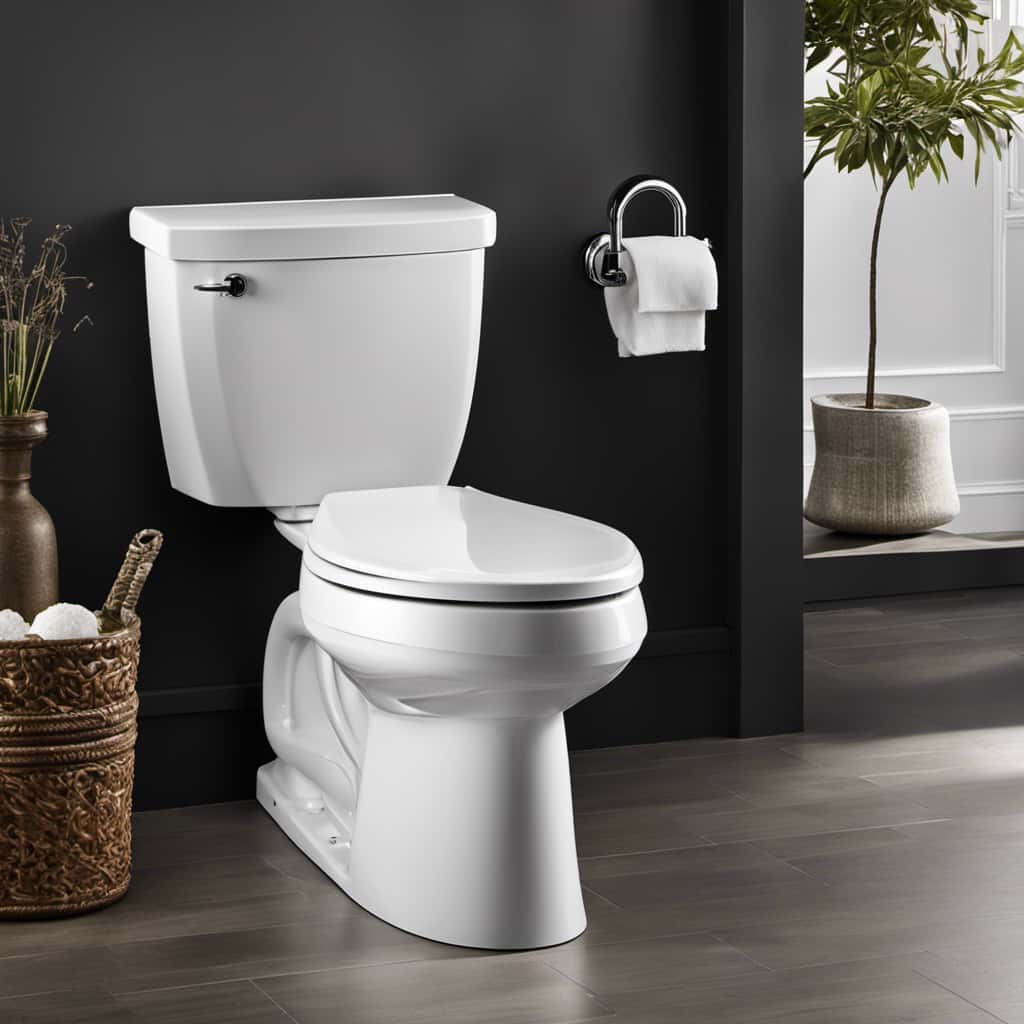
| Problem | Impact | Solution |
|---|---|---|
| Septic tank issues | Can lead to costly repairs and potential environmental contamination | Regular septic tank maintenance and avoiding flushing flushable wipes |
| Clogged pipes | Causes backups, slow drains, and costly plumbing repairs | Proper disposal of flushable wipes in the trash can |
To ensure the longevity and proper functioning of your plumbing system, it is crucial to refrain from flushing flushable wipes and dispose of them in the trash instead.
Misleading Labels: The Flushable Wipes Controversy
Discussing the flushable wipes controversy, misleading labels have caused confusion and raised concerns among consumers. Consumer perception of flushable wipes is heavily influenced by the marketing tactics employed by flushable wipes manufacturers. These manufacturers often label their products as ‘flushable,’ leading consumers to believe that they can be safely disposed of by flushing them down the toilet. However, this perception isn’t entirely accurate.
The marketing tactics used by flushable wipes manufacturers exploit the lack of a universal definition for the term ‘flushable.’ While some wipes may disintegrate in water, others don’t break down as easily, leading to clogged pipes and sewer blockages. This discrepancy in product performance has resulted in skepticism and frustration among consumers who trusted the labels.
As we delve into alternative solutions for disposing of flushable wipes, it becomes clear that misleading labels have played a significant role in the controversy surrounding these products.
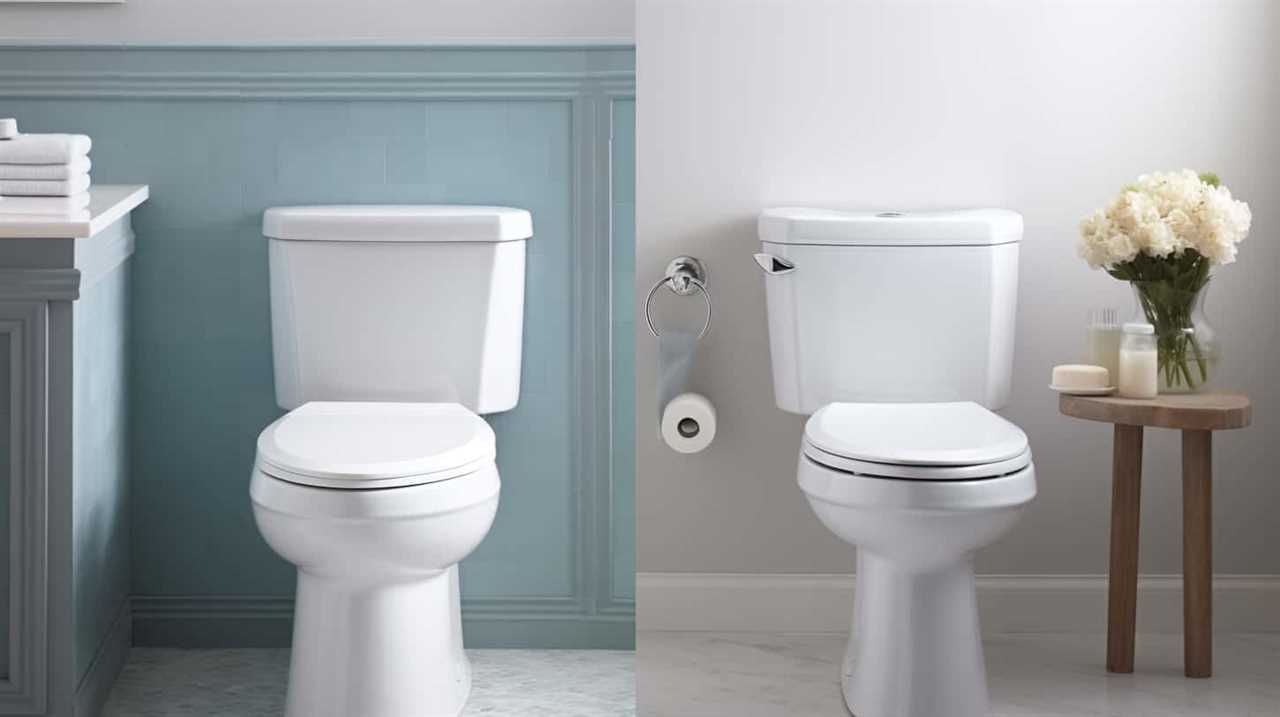
Alternatives to Flushing Flushable Wipes
One possible alternative to flushing flushable wipes is to dispose of them in the trash. This method offers several eco-friendly alternatives and wipes disposal methods that can help alleviate the environmental concerns associated with flushing. Consider the following options:
- Separate trash bin: Designate a separate bin specifically for disposing of flushable wipes, ensuring they’re kept separate from recyclable materials.
- Biodegradable bags: Use biodegradable bags to contain the wipes before throwing them in the trash, reducing the amount of plastic waste.
- Composting: If the flushable wipes are made from natural materials, they can be composted instead of being flushed, contributing to organic waste reduction.
- Reusable cloth wipes: Switching to reusable cloth wipes isn’t only environmentally friendly but also cost-effective in the long run.
By adopting these methods, we can promote sustainability and reduce the negative impact of flushable wipes on our environment.
Transitioning into the subsequent section, let’s explore the best practices for disposing of flushable wipes.
Best Practices for Disposing of Flushable Wipes
Our recommended best practice for disposing of flushable wipes is to properly dispose of them in a designated trash bin. While they may be marketed as "flushable," it is important to recognize that these wipes can still cause blockages in sewer systems and harm the environment. To further guide you in proper disposal methods, we have provided a table below outlining the options for disposing of flushable wipes:

| Method | Description | Advantages |
|---|---|---|
| Trash bin | Dispose of the wipes in a designated trash bin | Prevents blockages in sewer systems |
| Composting | Check if the flushable wipes can be composted in your local facility | Reduces waste and promotes environmentalism |
| Flushing | Only flush flushable wipes if recommended by the manufacturer | Minimizes the risk of clogging the plumbing |
Conclusion
In conclusion, the environmental and plumbing issues caused by flushing flushable wipes can’t be ignored. The misleading labels only add to the controversy surrounding their disposal.
Instead of contributing to the problem, it’s imperative to consider alternative methods of disposal that are both safe for the environment and don’t harm plumbing systems.
By adopting best practices for disposing of flushable wipes, we can ensure a cleaner and more sustainable future for all.

